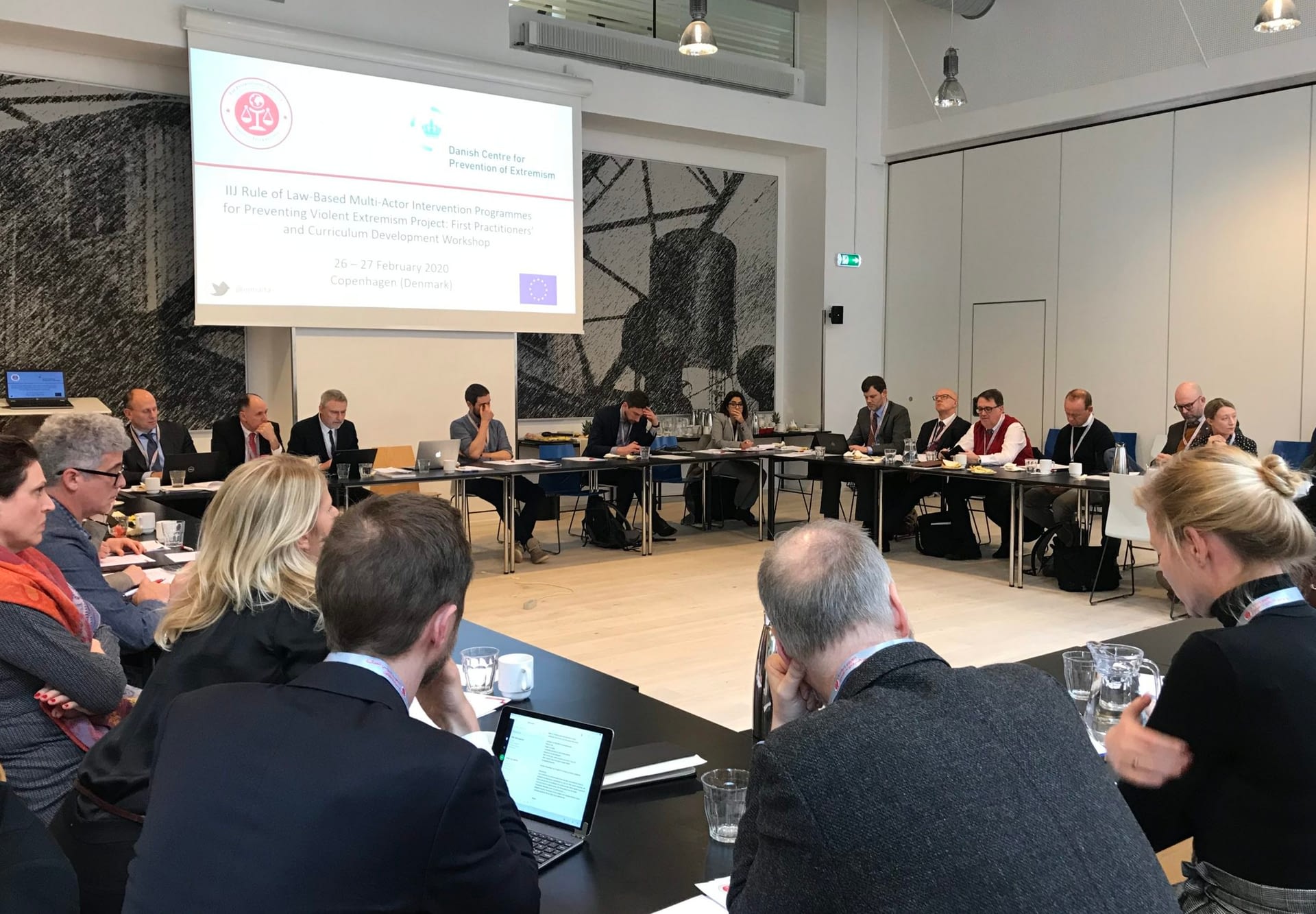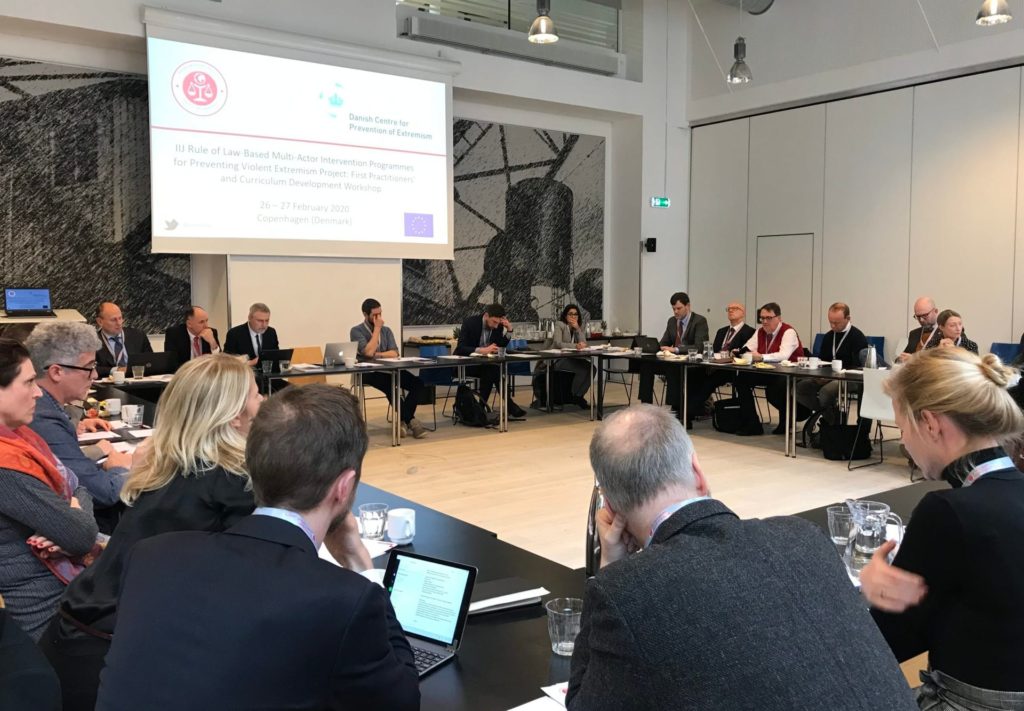
The IIJ, in cooperation with the Danish Centre for Prevention of Extremism, convened an expert workshop in Copenhagen in February 2020. The workshop brought together 40 practitioners from 16 countries with experience in designing and implementing multi-actor programmes for preventing and countering violent extremism (P/CVE), with a particular focus on referral mechanisms.
Multi-sector and multi-level collaboration within each country has increasingly been recognised by policymakers and practitioners as an important tool to identify, intervene, redirect and support individuals who are assessed to be ‘vulnerable to’, ‘at-risk of’ or already on the path to radicalisation to violent extremism and/or have expressed interest in engaging in terrorist activity, but have not committed crimes.
One of these forms of collaboration are so-called ‘referral mechanisms’, which involve one or more local actors. including social and health workers, religious mentors, family members and civil society organisations (CSOs). Such mechanisms enable the mobilisation of stakeholders who may be better placed to deliver an effective and preventative intervention because they have a particular competence, expertise, perceived credibility or legitimacy not possessed by local law enforcement authorities. These stakeholders can help bridge the gap where a case of concern has been identified, but law enforcement action is not appropriate.
Acknowledging the effectiveness of these programmes, the IIJ, with support from the European Union, is working on the elaboration and piloting of a first-of-its-kind curriculum to support the development and implementation of multi-actor intervention platforms for P/CVE across the world. In this context, our Copenhagen workshop – the first activity convened under this workstream – had the purpose of determining the key elements of training and other capacity-building components necessary to design such programmes.
During the two-day event, participants shared their experiences, identified challenges and proposed solutions across the spectrum of relevant issues that surround multi-actor intervention programmes for P/CVE, such as: overcoming barriers to information-sharing; assessing risks, needs, and capacities; building trust and mitigating stigma; ensuring the sustainability of the intervention effort; and monitoring and evaluation.
On the second day of the workshop, practitioners were divided into groups and asked to identify what elements should be included in the curriculum and the most effective ways of transferring the requisite knowledge to end users, while taking into account the need to ensure any curriculum would be relevant across varied geographical and cultural contexts.
The inputs collected at the Copenhagen workshop will inform a draft framework for the training curriculum, which will be presented and discussed at a second expert meeting scheduled to be held in Brussels on 24-25 June. This second meeting will aim at identifying the strengths and weaknesses of the draft framework and ways of improving its content and structure.
For more information on this workshop or the IIJ Multi-Actor P/CVE Interventions Workstream, please contact Programme Manager Adrián Carbajo.

